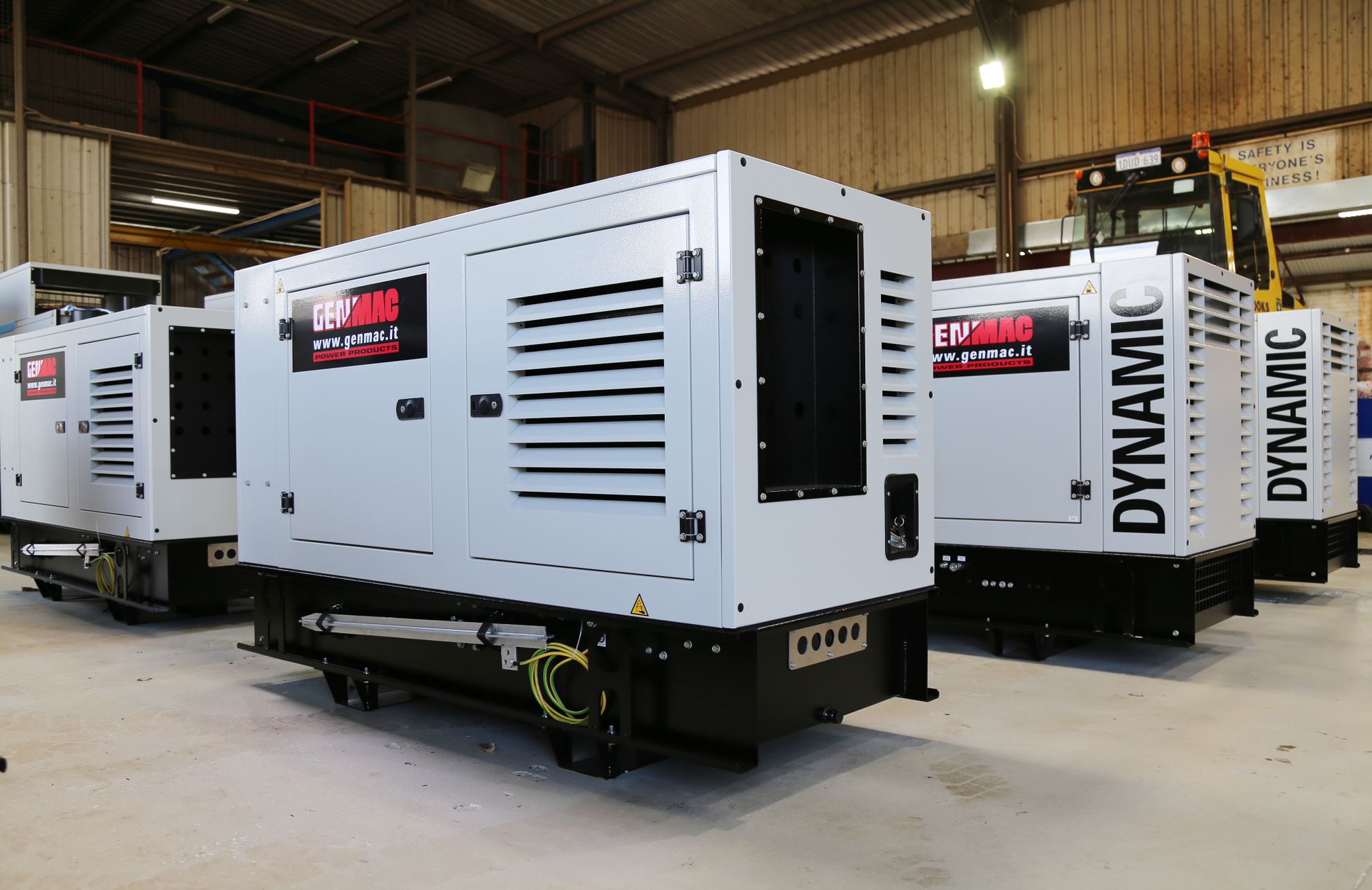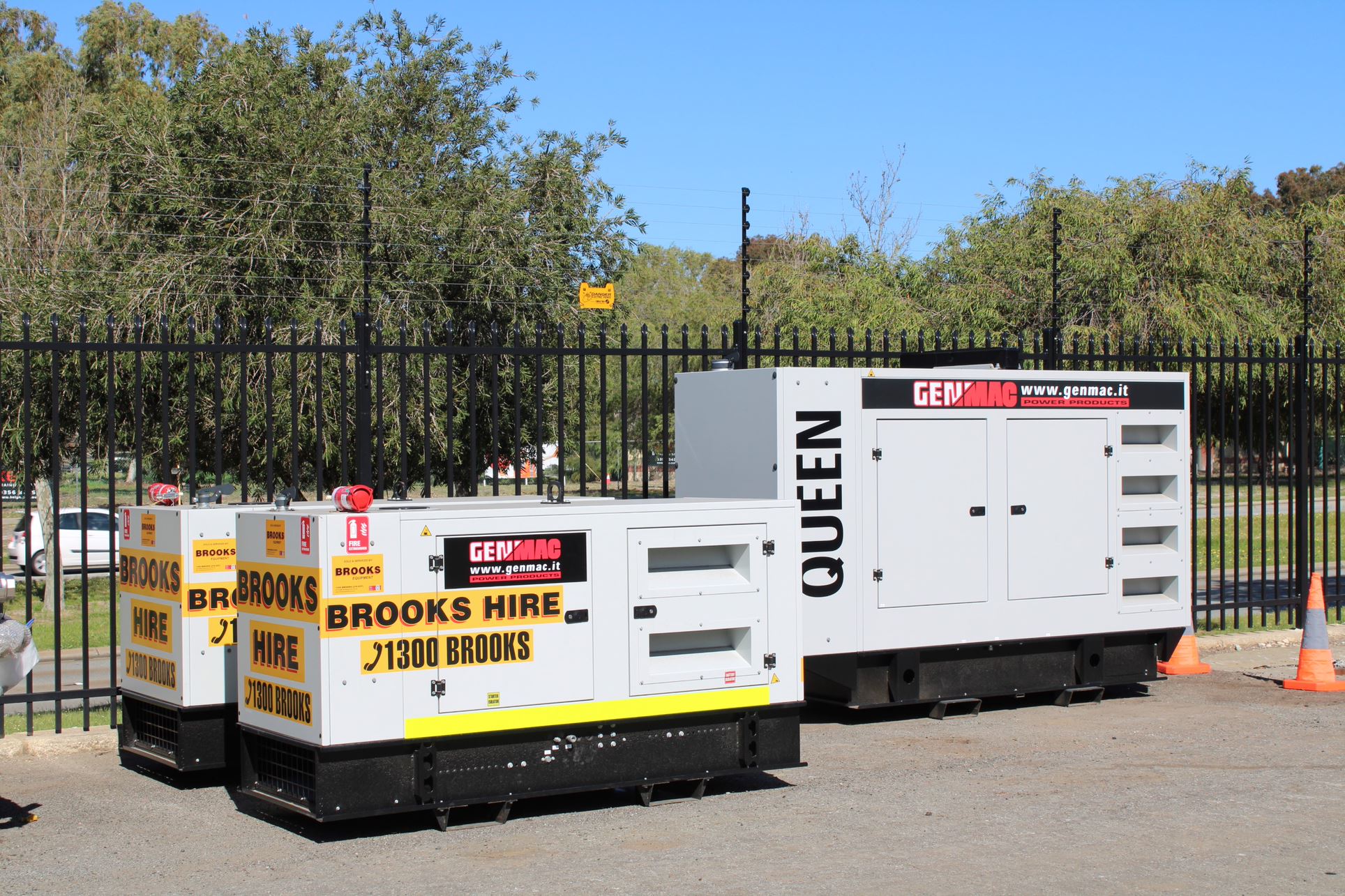A Guide to Brooks’ Generators
Used to power a variety of applications and wider spaces, generators come in a vast range of shapes and sizes, all offering varying features. Generators operate by converting chemical or mechanical energy into electrical energy. The source that each type of generator uses to do so, can vary significantly, with some utilising fuel, others natural gas and some solar. Most commonly, generators run on petrol or diesel fuel, depending on their key responsibilities.
Whether you’re using a generator as your primary source of power, or as back up in case of an emergency, there are some key considerations that should be made in the selection process.
Types of Generators
Generators are often distinguished by their output of electric power. There are three common types of generators on the market, with differing output means: inverter, portable and standby/industrial generators.
- Inverter generators are beneficial in that they create AC (alternating current) electricity, through the conversion of DC (direct current). The use of both AC and DC allows for a steady and continuous supply of power, and the ability to adjust the engine according to the load requirements. They’re a fantastic generator in situations such as camping, or when powering smaller sources, such as hand-held power tools.
Inverter generators generally reach a maximum output of approximately 7,000W, and for this reason, are not stocked at Brooks due to their inability to produce the power output needed for larger loads.
- Portable generators, unlike inverter generators, produce power with AC currents only. They provide effective temporary electrical power to smaller applications, such as small commercial sites, residential premises, camp sites, and for powering smaller tools.
-
- Standby/Industrial generators produce power for larger applications, such as commercial buildings, mining and construction sites, and essential hospital equipment in case of emergencies. They make up the majority of Brooks’ stock. These generators are capable of producing a large amount of power for long periods of time. Like portable generators, they operate using only AC currents.
The differentiation between portable and standby/industrial generators, using AC currents, can be further distinguished by the phase of electrical current they produce. The two options are single-phase and three-phase generators, both of which we stock at Brooks.
- Single-phase generators omit power through a single flow, that ebbs to a point of zero before increasing again. Although the process of this shift in power being outputted, occurs at such a speed that it is hardly noticeable to the naked eye, single-phase generators are more commonly utilised in residential or small commercial buildings, where these dips in electrical power are not severely detrimental. Running heavy machinery or large sites would not be practical with a single-phase system and is where three-phase generators are necessary.
-
- Three-phase generators operate with multiple waves of power, which ebb and flow at alternating times. This ensures that your power supply is never dropping to zero, rather, maintaining a constant flow. This ultimately allows for larger electrical loads to be produced and maintained and makes it ideal for industrial use.
 Diesel Generators vs. Petrol & Propane Gas Generators
Diesel Generators vs. Petrol & Propane Gas Generators
Your generator can be further categorised by the fuel used to produce electric power. There are a variety of fuel options on the market to power your generator, with petrol, diesel and propane gas providing the greatest variety. At Brooks, however, we stock only diesel-run generators for multiple reasons.
Where petrol is cheaper per litre, diesel-run generators often remain cheaper to run than their petrol counterpart. This is due to diesel generators requiring a smaller volume of fuel to run, and their motors being able to operate for longer between refills.
Similarly, gasoline-run generators are less fuel efficient than diesel. As a fuel source, gasoline is extremely expensive, making their use in generators impractical, especially when sourcing a generator for long-term use.
Not only this, but diesel generators rein superior in their energy use to power output. Diesel generators produce electrical power by converting their fuel supply into electrical energy and where petrol and gasoline generators require a lot of
oomph to do so, the engine of a diesel generator doesn’t have to work as hard to create the same power output. This means that diesel generators can run longer and require less maintenance over time, with wear.

Further Considerations
Once settled on the generic type of generator, further consideration should be made to the brand and subcategory of generator you’re looking for. Consider the application requirements; how large will the site be that you’re looking to power, what length of time will the site need to acquire power from the machine, and how many Watts will it take to power the individual applications on the site?
Take note of the generators fuel consumption per hour and per kVA as well as the generator’s maximum kVA, against what is required of the application. Generators at Brooks, range from 5kVA to a whopping 1,700kVA, depending on your needs.
To view the range, visit the Brooks Hire site at Generator Hire l Plant & Machinery Rentals | Brooks Hire